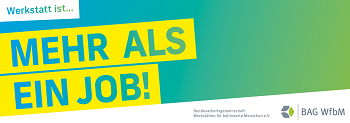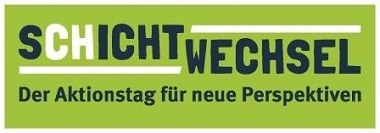Entry procedure
Participation in working life in a sheltered workshop always begins with the entry procedure (§ 57 Abs. 1 Nr. 2, Abs. 2 SGB IX).This is a period of usually three months during which the people with disabilities can familiarise themselves with the workshop setting. Together with the sheltered workshop, they can begin to decide which areas of the workshop are suitable for them according to their dispositions and skills (§ 57 Abs. 1 Nr. 1 SGB IX; § 3 WVO). At the same time, it is determined whether the services of the sheltered workshop are suitable for the respective person.
Department of vocational education
If both the sheltered workshop and the person with disability decide that the services of the sheltered workshop currently offer the right measures, the entry procedure is generally followed by a period of usually two years in the department of vocational education.
In the department of vocational education, many different skills are trained with the objective to individually develop, enhance or recover the performance and ability to work of each person with disability. This is done by promoting the personal development of the participants, systematically developing their professional and life skills and preparing them for appropriate activities either in the sheltered workshops department of work or on the open labour market. According to a holistic educational concept, the vocational action ability of each participant is built and developed in a person-centred way. This includes various measures as the spectrum of offers must be as broad as possible to correspond with the individual skills but also the type and severity of the disability (§ 4 Abs. 2 WVO). Alongside vocational education in the field(s) the person wants to work in, courses are also offered that focus on the development of practical life skills (e.g. societal norms, punctuality, personal care and hygiene, road safety education, money management).
BAG WfbM is working on a system by which – on the basis of a harmonised educational framework aligned to the recognized German system of vocational education – qualification modules can be achieved and certified, so that an employer is able to know which components of a regular professional training have been completed successfully by the person with disability.
Department of work
After completing the process in the department of vocational education it is re-examined whether the person with disabilities is able to find employment on the open labour market – for example through the above-mentioned measures of inclusive enterprises, supported employment, the ‘budget for work’ – or for example if the person can obtain vocational training in vocational training centres profit from the new ‘budget for apprenticeship’.
Otherwise, workshop users have the opportunity to transfer to the department of work. They have the right to indefinitely stay in the department of work. The sheltered workshop is required to have as broad a range of work opportunities as possible corresponding to the open labour market in order to take account as far as possible of the nature and severity of the disability, the different abilities and the suitability and inclination of the person concerned (§ 5 Abs. 1 WVO).The sheltered workshop is obliged by law to make every effort to support every workshop user individually in their development with the aim of a transition onto the open labour market (§ 5 Abs. 4 S. 1 WVO; § 58 Abs. 2 SGB IX).The number of transitions of workshop users to the open labour market is very low. This is because people with disabilities who have access to sheltered workshops in Germany have particularly severe disabilities. It is correspondingly difficult to find companies which are willing and able to provide suitable working conditions.
However, sheltered workshops try everything to enable and empower those people with disabilities, who are willing to take the step onto the open labour market. Here, the above mentioned measures can help as well the employers, the person with disability and the sheltered workshops to find ways to this goal.































